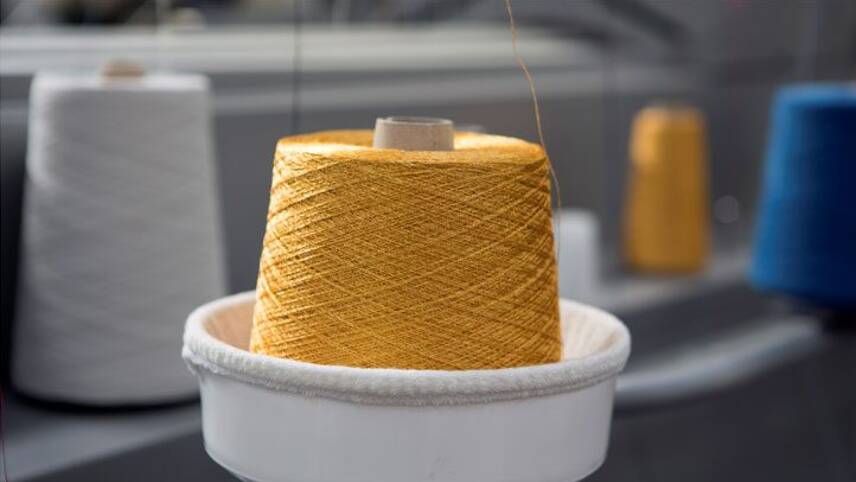Register for free and continue reading
Join our growing army of changemakers and get unlimited access to our premium content

The pilot will run for nine months. Image: UKFT
The project is called ‘Sustainable Supply Chain Optimisation’ and is being co-orchestrated by technology giant IBM, trade body the UK Fashion and Textile Association (UKFT), solutions provider Tech Data and the Future Fashion Factory, a Government-funded scheme aiming at accelerating the deployment of new textile and digital technologies.
Under the scheme, the retailers will trial a new technology platform that combines blockchain, artificial intelligence and sensors to create a tamper-proof audit chain of information about materials and products at each stage of the supply chain.
The project partners are hoping that the technology could give retailers and brands better insight into the environmental impact of their supply chains and on how workers are treated, enabling them to develop and deliver more targeted interventions. This information could also be conveyed to consumers using on-product labels and/or retailer websites.
Additionally, it is hoped that the technology will enable brands and retailers to spot potential disruptions earlier on and to better monitor production processes in real-time compared to contracts and projections, thus enabling opportunities to reduce over-procurement. By some estimates, 15% of the textiles procured by fashion companies each year are wasted before they reach the consumer.
The retailers and brands participating in the project are N Brown, New Look, Next and H&M Group, through its COS brand. Yarn manufacturer Laxtons is also taking part in the initial pilot.
“We recognise that collaborating on this project will help remove complexity, increase transparency and help develop sustainable solutions with more reassuring visibility of the people and the environments impacted throughout the value chain,” New Look’s head of sustainable development Joanna Poynor said.
“We anticipate that by bringing new technologies and global networks together, UKFT will accelerate change and allow the provenance of the products we sell to open up from origin to end-user.”
The project will run for nine months and is being enabled with £1.4m of funding from UK Research & Innovation (UKRI). This funding has been allocated through Innovate UK’s Industrial Strategy Challenge Fund for manufacturing – Manufacturing Made Smarter.
IBM has previously, separately, worked with Burberry on blockchain for traceability in fashion supply chains.
Transparency challenges
Fashion supply chains are notoriously complex. They are often multinational, with end-user brands and retailers seeking suppliers that can produce the most rapidly and cheaply to keep up with the fast fashion trend cycle. This has, historically, led to corners being cut in terms of environment and ethics.
According to Fashion Revolution’s 2021 Transparency Index, none of the world’s 250 largest fashion companies are completely transparent about the true impact of their supply chain. This is partly due to challenges collecting and verifying data across complex supply chains and partly due to an unwillingness from many businesses to disclose. The overall average score for the index, which assesses metrics relating to policy, governance, traceability, remediation and key ESG issues, was just 23%.
H&M Group was among the top ten scorers, with 68% overall. But, after the company used last year’s report to falsely conflate transparency with sustainability – and to claim it is the most transparent fashion brand in the world, neglecting to mention the fact that the Index excludes SMEs – Fashion Revolution this year included measures to ensure that businesses mentioned encouraged a more nuanced discussion.
Aside from the fashion companies detailed above, several other businesses are turning to blockchain in a bid to collect and protect more data on their supply chains. Advocates include The Estee Lauder Companies, Princes and AB InBev.
Sarah George


Please login or Register to leave a comment.